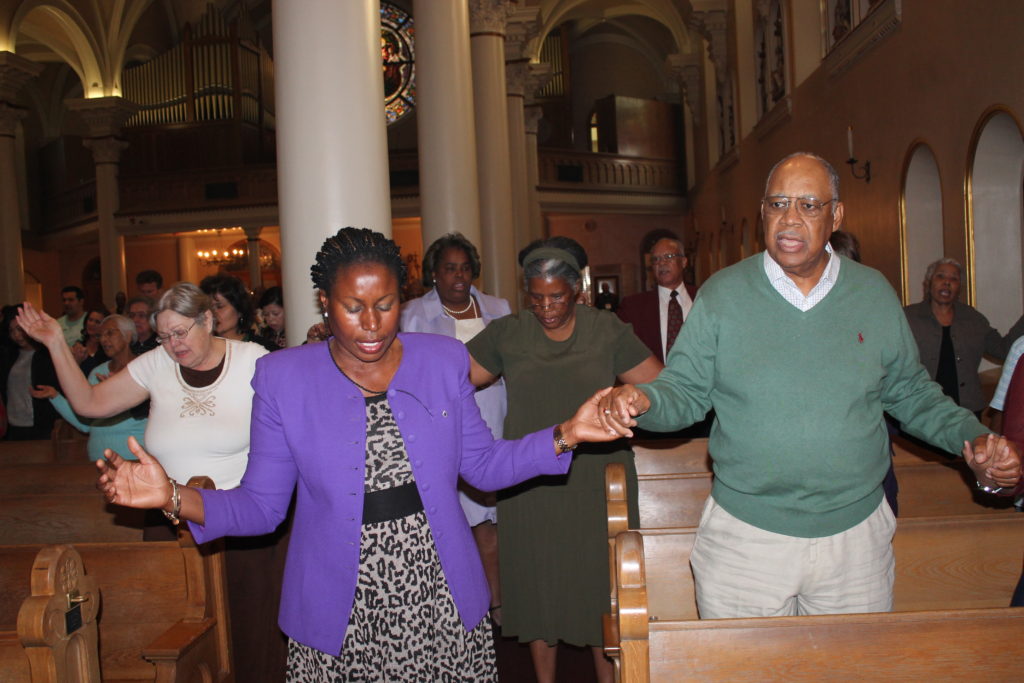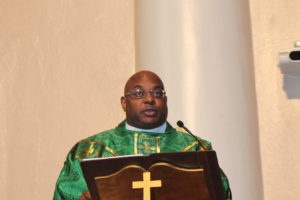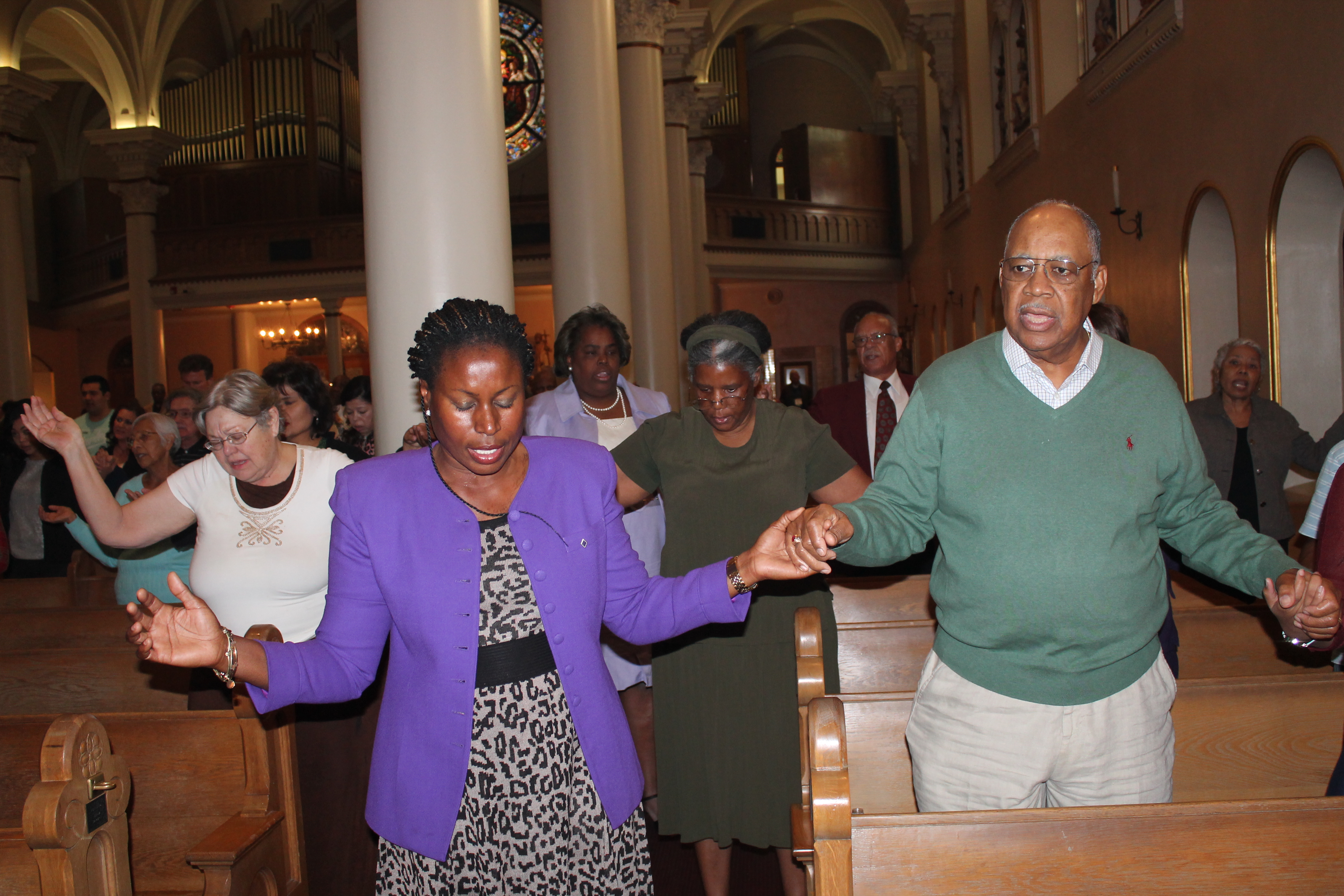
Msgr. Eugene Morris was just three years old when Dr. Martin Luther King Jr. was assassinated in 1968.
A priest of the Archdiocese of St. Louis, Msgr. Morris addressed attendees at the annual Mass honoring MLK Jan. 19 at St. Mary’s Basilica. Pointing to the shooting of Michael Brown last August in Ferguson, Mo. as evidence of the nation’s continuing racial divide — the incident involved a black youth shot by a white police officer — Msgr. Morris issued a passionate call to action.
“It’s not enough to say, ‘Yes, Lord, I believe in your grace and then simply do nothing. We have to live that grace out in our daily lives,” Msgr. Morris said. A lack of knowledge about the history of race relations in the U.S., he said, was problematic.
“There are a great many people, black and white, who don’t know the history of racial divide and racial tension and racial violence in this nation,” Msgr. Morris said. “This lack of historicity contributes to where we find ourselves today.”
The most poignant dynamic in the legacy of Dr. King, Msgr. Morris said, “is that he was a man of Christ, a man of God.” The slain civil rights leader was rooted in Jesus Christ and it was by drawing on his faith in Christ that he was able to effect social change.


Even the Church, Msgr Morris said, practiced segregation at one time. He recalled visiting two churches side by side in Louisiana, one built for blacks and the other for whites.
That’s something Marie Ausberry remembers too. She grew up in Louisiana and said she attended Holy Ghost School, staffed by an all-black order of nuns. A school for whites, Academy of the Immaculate Conception, was adjacent to Holy Ghost.
“At the time, you didn’t think too much of it because that was what was going on,” Ausberry said. “It’s just how it was.” Many people, she said, are unaware of the segregation that existed in the Church.
Chester Yancy said he marched with MLK in Selma, Ala. Although he grew up in Mesa, his mother took him to Arkansas and Mississippi when he was 13 to see what life was like there. He remembered seeing separate drinking fountains for blacks and whites.
“In his speeches, Dr. King always said, ‘White kids, black kids, red kids from Georgia,’ but he didn’t say ‘This is just for black people.’ He said, ‘This is for all God’s children,’” Yancy said. “You got to understand the times that were happening right then. Some people never forget those things.”
Yancy said he’d never attended the MLK Mass before. “It’s what Dr. King intended us to be — non-violent and brothers and sisters,” Yancy said.
Anitra Allen said she was in high school when MLK was assassinated. “I wish I were more conscious when history was happening that I was in the middle history,” Allen said. “I didn’t think I would live to see the day there would be a MLK holiday and I never thought I’d live to see a black president.”






